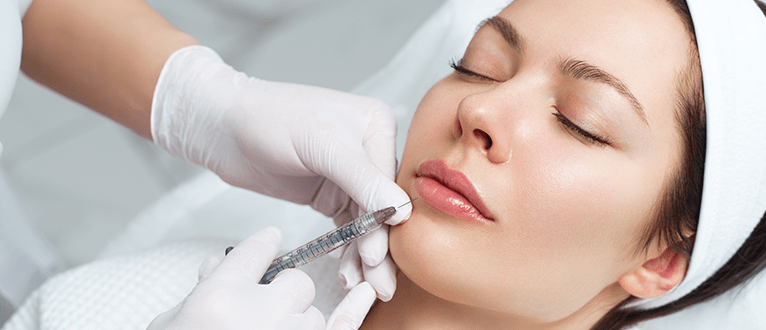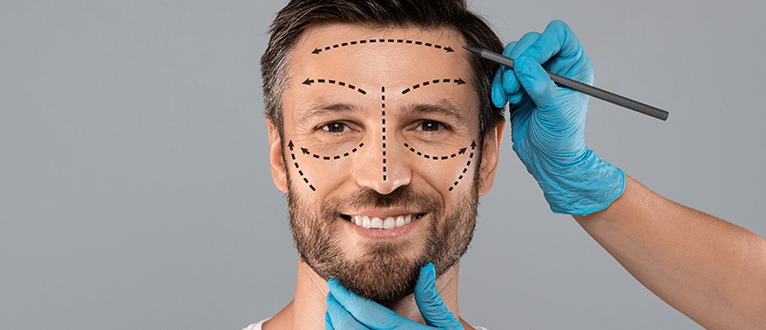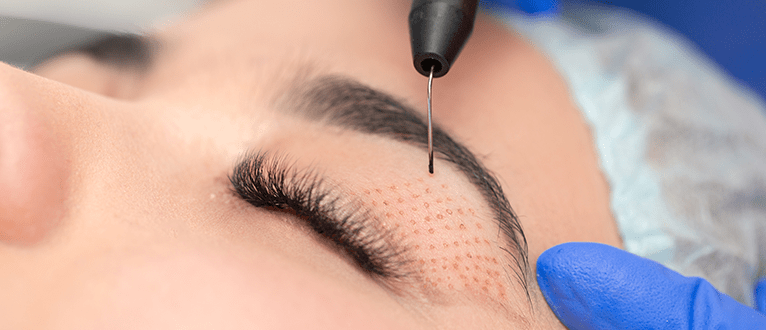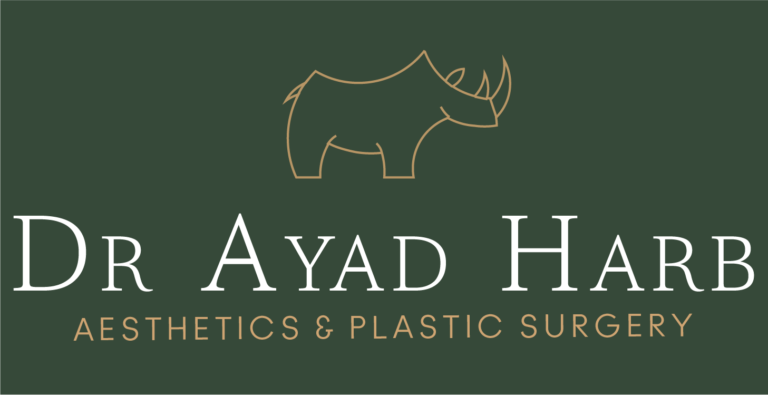Nowadays, plastic surgery is a popular form of aesthetics London treatment carried out to improve or otherwise alter an individual’s physical appearance. This is why these procedures are sometimes termed ‘cosmetic surgery’.

You may believe that plastic surgery procedures are a fairly new addition to the medical world today. However, they have deep roots in the past. Certain reconstructive surgical procedures are documented in medical literature dating back to Ancient Roman, Greek and Egyptian times and bear a close resemblance to plastic surgery as we know it today.
Without these early forms of reconstructive surgeries, modern plastic surgery might not exist. Both of these fields are connected in both the historical and the scientific senses. In this blog, we’ll give a brief background to the history of cosmetic or plastic surgeries. In addition, we’ll discuss the best plastic surgery aesthetics London clinic, so read on to learn more.
The story behind the name
One of the reasons plastic surgery is still considered taboo by some audiences is the use of the term ‘plastic’. Some people associate it with the synthetic material of the same name and may even believe that plastic is used in these procedures.
However, this is not the case. The term ‘plastic’ derives from the Ancient Greek word ‘plastikos’, which means to form or to mould, a description that suits these procedures down to the ground as their primary purpose is to alter a person’s appearance.
Reconstructive surgeries vs cosmetic surgeries
As mentioned, reconstructive surgeries and cosmetic surgeries are derived from similar roots. However, these two treatment types have diverged in modern times. Reconstructive surgeries refer to procedures that aim to correct facial or body defects. Surgeries of this type can benefit people who have been unfortunate enough to be born with congenital disabilities such as webbed fingers, cleft lips, and so on. Reconstructive surgeries can also be used to ‘reconstruct’ features after an injury like a car accident to more closely resemble what they used to be.
The term reconstructive surgery covers a wide range of procedures, including skin grafts, breast reconstruction after a lumpectomy or mastectomy, or rebuilding parts of the body affected by diseases.
Cosmetic plastic surgery types, on the other hand, are procedures carried out to alter or adjust a body part that a person wants to change because they are dissatisfied with it. Cosmetic surgeries have no medical purpose other than improving a person’s appearance and any benefits that the procedure might bring. Although cosmetic procedures do not correct a disability or make an individual more comfortable after an accident, they can still impact significantly on patients’ lives by giving them a boost in confidence and better body satisfaction, thereby improving their mental health.
Common cosmetic procedures include breast augmentation (making the breasts larger or smaller), rhinoplasty, liposuction, and injections like Botox or dermal fillers. There is an extensive range of cosmetic procedures available today, and some do not even require traditional surgery that involves making incisions on the body. Instead, they use non-invasive tools and techniques like lasers.
If you are looking for reputable, highly skilled ‘plastic surgery near me’ in a London clinic, you have come to the right place. Here at the Dr Ayad Aesthetics Clinic in London, we carry out a wide range of cosmetic surgeries and procedures. From non-invasive procedures that require very little downtime to more extensive work requiring the skills of a trained, qualified and experienced surgeon, our clinic offers many options for altering, improving and enhancing your appearance. You can visit our London clinic at 3A Montpelier St, SW7 1EX, or view the full list of our services in cosmetic surgeries. Bring out the best version of you with the help of our cosmetic team, which is made up of professionals in various cosmetic surgery and medical fields.
We aim to be as transparent as possible about the costs of our cosmetic and plastic surgery procedures, so include a complete list of both the non-surgical and surgical treatments that we offer on the ‘fees’ tab of this website. The prices mentioned here are an initial estimate. Because we understand that every patient is an individual, our services are bespoke, and you will receive a full breakdown of the cost of your treatment once we have held a consultation with you to discuss your goals and agree on the procedures that will be carried out. Costs can also vary depending on the clinic you attend and the doctor or surgeon who performs the surgery. If you have any questions, please don’t hesitate to contact us using the online contact form on this website. Alternatively, call us on 020 7584 4777 or send us an email at info@drayad.com.

FREQUENTLY ASKED QUESTIONS
What is plastic surgery?
Plastic surgery in the UK is a surgical speciality that focuses on changing a person’s appearance and/ or repairing tissue damage caused by disease, accident, or birth anomalies. Plastic surgery restores and enhances function as well as looks. In the UK, the British Association of Aesthetic Plastic Surgeons (BAAPS) regulates the practice of cosmetic surgery, ensuring high standards are maintained.
Why do teenagers want plastic surgery?
Many plastic surgeries requested by teens are, in general, to boost their self-esteem by improving their appearance. Teens are often consumed with the need to fit in rather than stand out so they are accepted by their peers. They, therefore, seek cosmetic surgeries in an effort to ensure their features conform to what is seen to be the ideal.
What is the most popular plastic surgery?
The most popular forms of plastic surgery vary from country to country. In the UK, the most common procedures are:
- Breast augmentation.
- Breast lift (mastopexy).
- Dermabrasion.
- Eyelid surgery (blepharoplasty).
- Facelift (rhytidectomy).
- Liposuction.
- Nose reshaping (rhinoplasty).
- Tummy tuck (abdominoplasty).
What is the safest plastic surgery?
Minimally invasive cosmetic procedures, such as fillers, neurotoxins and laser and energy device procedures, have been proven to be exceedingly safe and have little risk of serious adverse side effects. This is according to a new study that analysed more than 20,000 procedures around the country.
How much do plastic surgeries cost in the UK?
Prices vary between providers and depend on the procedure being carried out, so it is impossible to give a ballpark figure except to say plastic surgery tends to cost thousands of pounds. One thing to note, though, is that this is a highly skilled field, and you should never choose a clinic or provider based on low costs alone.
In which country is plastic surgery most popular?
Perhaps surprisingly, South Korea sees the highest rates of aesthetic treatments worldwide. This can be attributed to cultural and societal factors that include pressure on women to maintain a youthful appearance, a desire to conform to perceived norms for beauty, and a lack of opportunities for professional advancement.

Steps on How To Choose a Plastic Surgeon
Plastic surgeons can help you recover your self-esteem and self-confidence by rectifying or improving your appearance after sickness or injury. Placing your body in the hands of a doctor may be frightening. However, if you take your time and do extensive research, you’ll be better placed to make an informed decision. Try to meet with any prospective surgeon face-to-face to ensure you are opting for one who is qualified, works at a reputable institution, and makes you feel comfortable with the work that will be carried out.
If you aim to claim back some or all of the costs on your health insurance, check with your provider whether you are covered for the procedure before committing. Because plastic surgery tends to include reconstructive and corrective treatments for injuries or natural defects, these are more likely to be covered by insurance plans than cosmetic surgery. Your insurance provider may have a list of surgeons approved to carry out the desired procedure.
You can also ask your own doctor or another medical practitioner you trust for a recommendation – they may know of competent plastic surgeons working in the field.
You could also make use of your network, enquiring discreetly whether family, friends, or other contacts have ever used a plastic surgeon. If possible, ask what procedure the surgeon performed for them and whether they would recommend them for your own needs.
There is at present no specific qualification for carrying out cosmetic procedures such as reconstructive surgery, and with the rise in numbers of people seeking such treatment, it’s very important that you check out the credentials of any clinic or specialist you are thinking of entrusting your care to. You need to ensure you are placing yourself in the hands of a reputable and properly qualified surgeon, so research their credentials and relevant experience before you commit.
Ensure they are a member of an appropriate professional body such as the Royal College of Surgeons. Plastic surgeons can operate from hospitals, independent practices, and other places, so if you are planning to attend a private clinic, check that it’s approved by the relevant regulator, if necessary. As noted, you should also schedule a face-to-face meeting with any plastic surgeon you are thinking of using. Take the opportunity to ask as many questions as you may have while also viewing their facilities to make sure you’re happy with issues such as cleanliness and professionalism.
Tips to Pick the Right Plastic Surgeon
Asking the right questions can help you narrow your search when looking for a plastic surgeon. There are many doctors offering these kinds of services, and you need to take some time to find one who is right for you. You can get started by asking some or all of the following before booking a consultation:
- What is the doctor’s training, and what certifications do they hold? In the UK, most doctors have a medical degree from a UK university and must have completed five years of hospital training. Doctors are generally registered by the General Medical Council (GMC).
- What is the doctor’s experience with the particular procedure you are considering? If the surgeon has performed the procedure many times and has received specialised training, ask how long he or she has been doing it.
- Does the doctor ask you about your reasons for having the procedure, and are you comfortable talking openly with this doctor? An excellent cosmetic surgeon will talk about all of the alternatives to the procedure and will not pressure you into making a quick decision.
- Can you talk to other patients who have had the same procedure performed by this surgeon? Past clients are a good source of information and will help you understand the kinds of results and levels of service and care you might receive.
- What does the procedure cost? Is payment expected up-front? Most cosmetic procedures are not covered by insurance plans and are considered elective. You need to understand what the cost will be and know that it is within your budget.
While you may have perfectly valid reasons and motivations for seeking plastic surgery, the prospect can still be frightening, and you must understand all the benefits and possible risks before you take the next step. At Dr Ayad Aesthetics Clinic in London, we ensure that our patients are given the best advice on everything they need to know about cosmetic surgery. And if they choose to proceed with treatment at our clinic, we make sure that they receive nothing but the very best of care in friendly yet professional surroundings. Visit our homepage to learn more.
